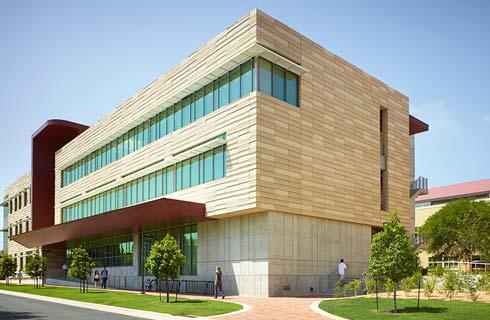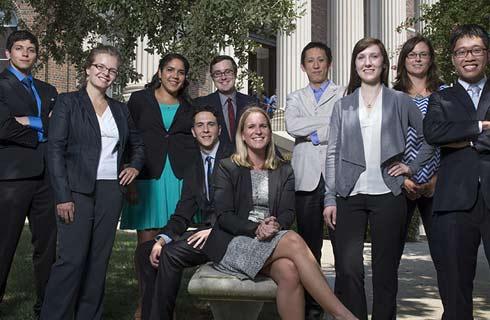Bachelor of Arts in Philosophy - Mind, Brain, and Cognitive Sciences

学历文凭
Bachelor Degree

专业院系
认知科学

开学时间

课程时长

课程学费

国际学生入学条件
To be considered for admission, you must have completed secondary school with a superior average in academic subjects and have earned a certificate of completion that enables you to be admitted to a university in your home country and is equivalent to a U.S. high school diploma.
Non-California residents, including International applicants, must earn a GPA of 3.4 (or better) with no grade lower than a "C."
Internet-based- 83
Paper-based- 550
IELTS minimum score of 7 (Academic module)
IDP—雅思考试联合主办方

雅思考试总分
7.0
了解更多
- 雅思总分:7
- 托福网考总分:83
- 托福笔试总分:550
- 其他语言考试:Duolingo English Test (DET): Minimum score of 115
CRICOS代码:
申请截止日期:请 与IDP联系 以获取详细信息。
课程简介
Traditional epistemology (the theory of how and what we know) and philosophy of mind (the theory of that-which-perceives-and-thinks) have recently been joined by several scientific disciplines in a collective search for illuminating theories. Psychology, cognitive neurobiology, computer science, and sociology have all made explosive contributions to a tradition as old as Plato and Aristotle. For example, our growing understanding of the biological brain has given new life to our traditional attempts to understand the nature of the mind. New accounts of the various mechanisms of cognitionboth at the cellular and the social levelshave provided entirely new perspectives on the nature of consciousness, the self, knowledge and free will, and on the nature of science itself. Philosophy also seeks answers to particular problems in specific areas of science, medicine, law, ethics, and technology. For example, it explores the ways that modern physics impacts our notions of space, time, causation, and nature itself. It considers the ways that neuroscience and genetics impact the traditional ideas about free will and responsibility. It debates the limits of democratic governments in regulating individuals conduct. It wrestles with problems about the right to die and the varied responsibilities of medical professionals. It inquires into the relation between science and religion. Related issues concern privacy, the limits of private property, and who should have access to what information. Philosophy is a broad field with diverse subfields. Some students may want to pursue a general course of study for the major, sampling courses across several of these distinct subfields. This strategy develops a solid foundation for graduate work in philosophy and for any career that requires breadth of knowledge, intellectual flexibility, as well as communicative and analytic skills.
相关申请

预科

奖学金

实习机会

在校学习

跨境学习

校园授课-线上开始

在线/远程学习
学校排名
世界排名
30
数据源:泰晤士高等教育世界大学排名
本校相关课程
Master of Arts in Music

学历文凭
Masters Degree
下一个开始日期
课程费用总额
Master of Business Administration

学历文凭
Masters Degree
下一个开始日期
课程费用总额
Master of Fine Arts in Writing

学历文凭
Masters Degree
下一个开始日期
课程费用总额
Master of Arts in Latin American Studies

学历文凭
Masters Degree
下一个开始日期
课程费用总额
Master of Arts in History

学历文凭
Masters Degree
下一个开始日期
课程费用总额
Master of Arts in Global Health

学历文凭
Masters Degree
下一个开始日期
课程费用总额
其他相关课程
认知科学文学士

西蒙菲莎大学
泰晤士高等教育世界大学排名:

学历文凭
Bachelor Degree
下一个开始日期
课程费用总额
认知科学(荣誉)文学士学位

约克大学
泰晤士高等教育世界大学排名:

学历文凭
Bachelor Degree with Honours
下一个开始日期
课程费用总额
认知系统科学学士学位

不列颠哥伦比亚大学
泰晤士高等教育世界大学排名:

学历文凭
Bachelor Degree
下一个开始日期
课程费用总额
认知系统文学士学位

不列颠哥伦比亚大学
泰晤士高等教育世界大学排名:

学历文凭
Bachelor Degree
下一个开始日期
课程费用总额
神经科学与应用认知科学理学硕士

圭尔夫大学
泰晤士高等教育世界大学排名:

学历文凭
Masters Degree
下一个开始日期
课程费用总额
荣誉科学理学士学位(科学)

多伦多大学
泰晤士高等教育世界大学排名:

学历文凭
Bachelor Degree with Honours
下一个开始日期
课程费用总额





